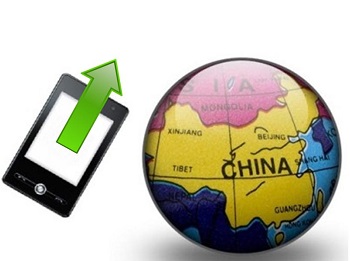Mobile commerce continues its aggressive expansion in China
China is leading the way in mobile commerce growth
China is becoming more aggressive when it comes to mobile commerce. Until very recently, the country has relied heavily on cash rather than other forms of commerce. Many shoppers throughout the country had preferred paying in cash because they considered it more secure and convenient. As smartphone penetration grows, however, more consumers are beginning to use their mobile devices to shop for and purchase products. Large companies are beginning to take advantage of this, offering consumers new services that allow them to participate in mobile commerce.
WeChat is finding success by encouraging consumers to use its mobile payments service
WeChat is one of the companies looking to bring consumers into the mobile commerce field. WeChat is China’s largest messaging application and social network and the company launched an ambitious campaign last year to highlight its new payments service. During Chinese New Year last year, some 400 million people sent hongbao, traditional gifts containing money sent during the holiday, to their friends and families. This year, however, more than 1 billion digital hongbao were sent through WeChat’s service.
Consumers are finding it easier to shop for and purchase products with their mobile devices
 Consumers are becoming more comfortable with the concept of mobile commerce, using services like Alipay to purchase products that they are interested in. The companies and retailers behind these services are quickly expanding, looking to find every greater degrees of success in the mobile commerce market. Some of these companies, such as Alibaba, are also investing in foreign mobile commerce firms, hoping to establish a foothold in new markets and encourage the further growth of the mobile commerce field.
Consumers are becoming more comfortable with the concept of mobile commerce, using services like Alipay to purchase products that they are interested in. The companies and retailers behind these services are quickly expanding, looking to find every greater degrees of success in the mobile commerce market. Some of these companies, such as Alibaba, are also investing in foreign mobile commerce firms, hoping to establish a foothold in new markets and encourage the further growth of the mobile commerce field.
Young consumers are more likely to participate in mobile commerce
While many consumers still prefer to pay for products with cash, young consumers are embracing mobile commerce quite aggressively. These consumers have been exposed to technology from a young age, making them more comfortable with digital services. Older consumers are also embracing mobile commerce, but at a slower pace. As new services become available, more consumers are expected to become involved in mobile shopping.

